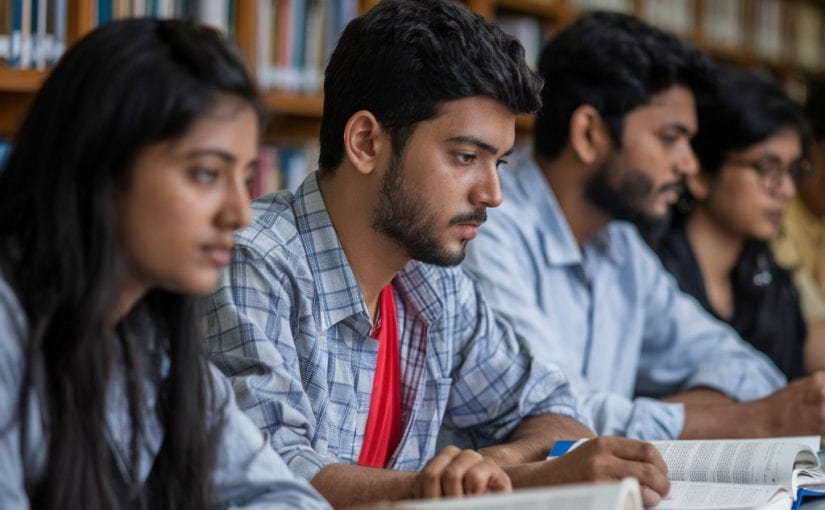The Reserve Bank of India (RBI) is the apex financial institution in the country, responsible for shaping monetary policy, regulating financial institutions, and ensuring economic stability. Within the RBI, the Department of Economic and Policy Research (DEPR) plays a pivotal role. It offers a specialized career path for individuals passionate about economics, policy research, and making a meaningful impact on India’s financial landscape.
If you’re preparing for the RBI DEPR examination, understanding the career opportunities and growth potential in this field can serve as a powerful motivator. Let’s delve into why this department is an excellent choice for budding economists and what awaits you once you join this esteemed institution.
Understanding the Role of RBI DEPR
The RBI DEPR is integral to the Reserve Bank’s functioning, focusing on economic analysis, policy research, and forecasting. As a DEPR officer, you will be involved in drafting reports, conducting research on macroeconomic trends, and advising policymakers. Your work will influence crucial decisions on monetary policies, inflation targeting, and financial regulations.
This role is ideal for individuals with a solid academic background in economics, strong analytical skills, and a passion for solving real-world economic challenges.
Career Growth Path in RBI DEPR
The career growth in RBI DEPR is structured, rewarding, and intellectually stimulating. Here’s an overview of how your career can progress after joining as an officer:
1. Entry-Level Position: Manager (Grade B)
As an entry-level DEPR officer, you join at the Manager (Grade B) position. At this stage, your responsibilities include assisting in research, preparing economic reports, and supporting policy formulation. This is where you’ll hone your expertise in applied economics and data analysis.
- Key Responsibilities:
- Drafting economic bulletins and working papers.
- Analyzing inflation, GDP trends, and global economic scenarios.
- Assisting in framing monetary policies.
2. Mid-Level Positions: Assistant General Manager and Deputy General Manager
With a few years of experience, you can ascend to positions like Assistant General Manager or Deputy General Manager. These roles come with greater responsibilities and the opportunity to lead research projects.
- Key Responsibilities:
- Supervising teams working on specialized research areas.
- Collaborating with other departments within RBI.
- Representing RBI in national and international economic forums.
3. Senior-Level Positions: General Manager and Chief General Manager
At the senior management level, you’ll have a strategic role in policy development and economic planning. You may lead critical departments within DEPR and contribute to high-level discussions with government agencies and international organizations.
- Key Responsibilities:
- Overseeing large-scale policy research projects.
- Advising senior policymakers and contributing to strategic planning.
- Publishing authoritative economic papers in reputed journals.
4. Top-Level Positions: Executive Director and Beyond
Exceptional performance can lead to top-level executive roles within the RBI, such as Executive Director or Deputy Governor. These positions allow you to shape India’s economic policies at the highest level.
- Key Responsibilities:
- Formulating and approving key monetary and fiscal policies.
- Representing RBI in international negotiations and conferences.
- Leading nationwide economic development initiatives.
Benefits of Pursuing a Career in RBI DEPR
1. Intellectual Fulfillment
As an RBI DEPR officer, your work revolves around solving complex economic problems. It’s a career for those who thrive on intellectual challenges and continuous learning.
2. Competitive Compensation
RBI offers one of the most attractive pay scales in the public sector. Besides the base salary, you’ll enjoy various perks like housing, medical benefits, and travel allowances.
3. Opportunities for Global Exposure
DEPR officers often represent RBI at international conferences and collaborate with global economic organizations like the IMF and World Bank. This exposure broadens your perspective and enhances your professional profile.
4. Professional Growth
The structured hierarchy ensures continuous professional development. Internal promotions, training programs, and research opportunities keep you engaged and motivated.
5. Contribution to National Development
Your work as a DEPR officer directly impacts India’s economic policies and financial stability. Knowing that your efforts contribute to the nation’s progress is immensely rewarding.
How to Prepare for RBI DEPR and Secure Your Career
Clearing the RBI DEPR exam requires focused preparation, as the competition is fierce. Here are some tips:
- Understand the Syllabus: Master topics like microeconomics, macroeconomics, econometrics, and Indian economic policies.
- Stay Updated: Keep track of current economic trends and RBI publications.
- Practice Mock Tests: Take RBI DEPR-specific mock tests to refine your time management and accuracy.
- Develop Research Skills: Strengthen your ability to analyze data and interpret economic models.
- Ace the Interview: Prepare for questions related to your academic background, economic theories, and their application in real-world scenarios.
Why RBI DEPR is a Dream Career for Indian Economists
For Indian aspirants, a career in RBI DEPR offers the perfect blend of prestige, intellectual rigor, and societal impact. It’s a platform where you can apply your academic knowledge to real-world challenges and contribute to India’s economic growth.
Moreover, the structured growth path, global exposure, and opportunities for professional development make it an attractive choice for anyone passionate about economics and policy research.
Conclusion
Joining RBI DEPR is not just about securing a stable government job; it’s about embarking on a journey of professional excellence and national service. The career growth opportunities are vast, from entry-level research roles to top executive positions influencing India’s economic policies.
Also Read: Why UPSC Economics Optional Coaching is a Game-Changer for Aspirants



